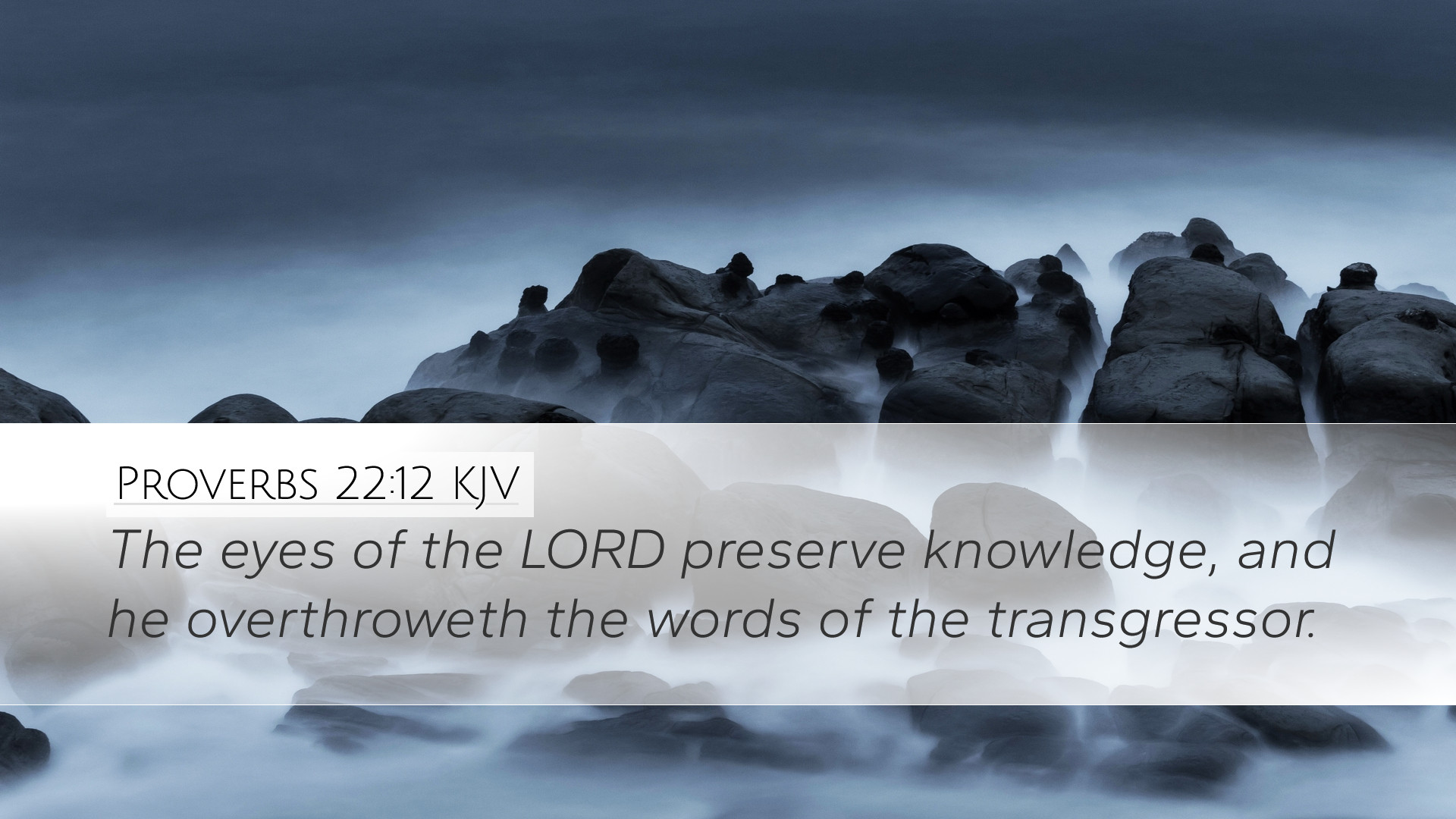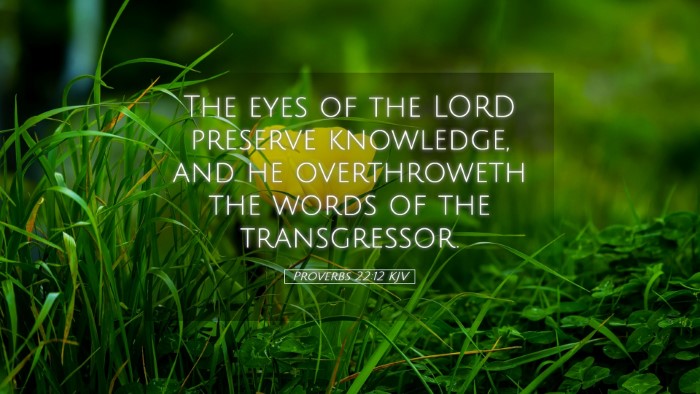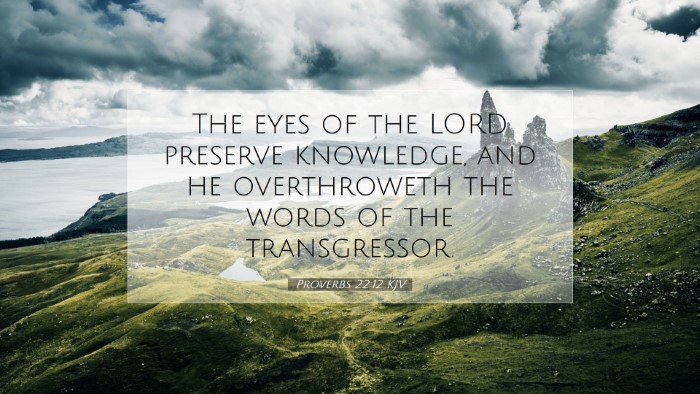Commentary on Proverbs 22:12
Verse: "The eyes of the Lord preserve knowledge, and he overthroweth the words of the transgressor."
Introduction
The verse Proverbs 22:12 contains profound truths regarding divine knowledge and human deception. This commentary draws insights from public domain commentaries, seeking to delve deeper into its theological implications and practical applications. Both scholars and laypersons will find valuable insights into the text's meaning, context, and relevance to contemporary life.
The Eyes of the Lord Preserve Knowledge
Firstly, the phrase "The eyes of the Lord" is a metaphorical expression that denotes God's omniscience and omnipresence. As Matthew Henry articulates, this phrase signifies that God is always vigilant, observing not only human actions but also the intents of the heart. It emphasizes that God's knowledge is not merely theoretical but active in the world, preserving truth and virtue.
Albert Barnes adds that God safeguards the knowledge of the righteous, ensuring that it is upheld and that their wisdom is not in vain. This preservation of knowledge is a promise that those who seek to live in accordance with God's statutes will have their understanding sustained and their paths illuminated.
The Nature of Divine Knowledge
- God’s Assurance: The verse reminds believers that God's understanding protects wisdom. Knowledge is not an end in itself but a means to a godly life.
- Source of Wisdom: Knowledge is birthed in the fear of the Lord (Proverbs 1:7). The preservation of this knowledge is therefore vital for a righteous walk.
- Awareness of Accountability: Knowing that God sees all encourages believers to live honestly and with integrity, knowing that their lives are transparent before Him.
The Overthrow of the Words of the Transgressor
In contrast to the preservation of knowledge, the latter part of the verse—"and he overthroweth the words of the transgressor"—highlights God's opposition to deceit and wickedness. Adam Clarke suggests that this indicates not only a divine reprimand of falsehood but also a promise that such words will face ultimate failure.
Transgressors are those who knowingly violate God's law, and their words are often laden with lies and deception. Thus, this segment of the verse serves as a warning: those who act against God's will may seem to prosper momentarily, but their words and actions will ultimately lead to their downfall.
Consequences of Deception
- Temporary Gains: The truth may be obscured for a time, but God’s justice ensures that falsehoods will eventually be exposed.
- Divine Judgment: God actively opposes those who sin and deceive; the overthrow of their words signifies His commitment to the truth.
- Call to Repentance: The transgressor is called to repentance, as God offers grace for those willing to turn from their ways.
Theological Reflections
From a theological perspective, this verse encapsulates the dichotomy between divine knowledge and human folly. It reassures believers that their pursuit of truth is grounded in divine providence while simultaneously delivering a somber warning to those who stray from God’s path.
- Divine Sovereignty: God’s control over knowledge and the fate of the wicked emphasizes His sovereignty in all matters.
- Eschatological Implications: Transgressors may find temporary relief in their deceit, but ultimate justice belongs to God, hinting at eschatological themes present in both the Old and New Testaments.
Practical Applications
This verse invites believers to consider their alignment with God’s wisdom. It encourages a diligent pursuit of knowledge—spiritual, moral, and practical—as well as the importance of honesty in communication.
- Commitment to Truth: Pastors, theologians, and students should strive to uphold and propagate truth, recognizing that their words have divine significance.
- Awareness of Influence: Believers must be mindful of the teachings they endorse, ensuring they reflect biblical principles.
- Fostering a Culture of Integrity: In their ministries and studies, leaders are called to cultivate environments where truth prevails over deception.
Conclusion
Proverbs 22:12 encapsulates important themes of divine vigilance, the preservation of wisdom, and the ultimate fate of the deceitful. It serves as both a comfort and a challenge, encouraging believers to trust in God’s safeguarding of knowledge while warning of the consequences of transgressing His truth. Therefore, this verse remains highly relevant for pastors, students, and theologians in their quest for understanding and living out biblical principles.


